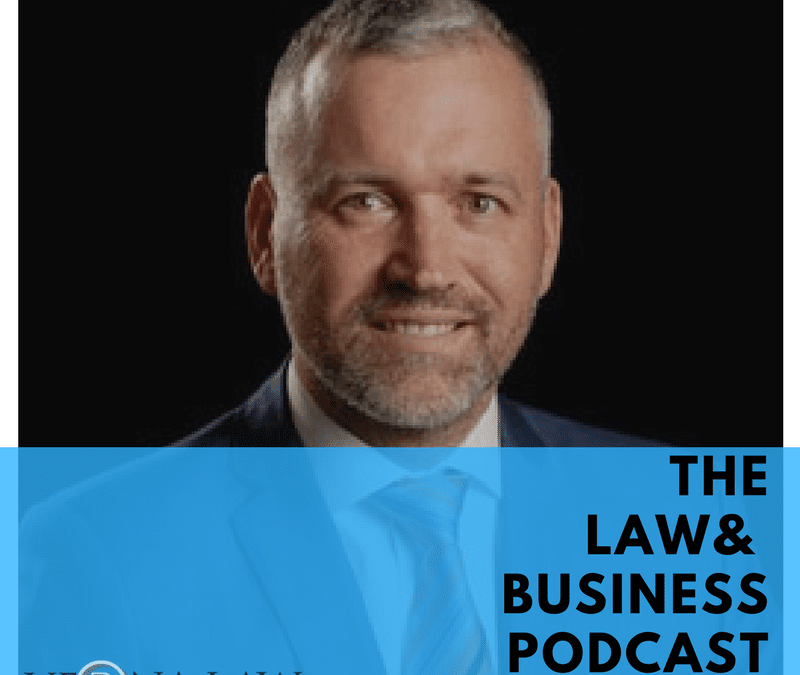Podcast: Play in new window | Download
Subscribe: Apple Podcasts | Email | RSS
In the Law & Business Podcast Episode 26, Australian barrister Ed Heerey helps to compare U.S. and Australian Rights of Privacy and Publicity law and issues.
This is one of the most fun episodes of the podcast. Anthony visits Ed Heerey, an Australian barrister, to discuss Australian rights of privacy and publicity. Anthony and Ed compare famous Australian cases with famous American cases.
Australian rights of privacy and publicity are completely judge-made, stemming from Paul Hogan (famous as Crocodile Dundee) suing an Australian company for a parody advertisement that it made.
Here is the original scene from “Crocodile Dundee”:
Here is a terrible advertisement for a shoe company in Australia. But, as one can see, the mise-en-scene is taken from “Crocodile Dundee.”
In this case, the majority of Australian judges found the defendants liable in “passing off.” The relevant
issue on appeal, according to the majority, was “whether a significant section of the public would be misled into believing, contrary to the fact, that a commercial arrangement had been concluded between the plaintiff and the defendant under which the plaintiff agreed to the advertising”, a question which was co be answered in the affirmative. Another judge in the case said that character merchandising “should not be seen as setting off a logical train of thought” in the minds of the public, and its importance lies in the creation of an association of the produce with the character, not in making precise
misrepresentation.
Accordingly, to ask whether the consumer reasoned that the plaintiff had authorized the advertisement was to ask a question which was “a mere side issue.” What mattered was the fact that the consumer wished to identify with the character or personality and was moved “by the desire to wear something belonging in some sense to Crocodile Dundee (who is perceived as a persona, almost an avatar, of Mr. Hogan).” According to the majority, the arousal of such a feeling by Hogan himself could not be regarded as misleading, since “the value he promises the product will have is not in its leather, but in its association with himself.” An unauthorized advertisement, on the other hand, would be misleading since it would lack the valuable association between the product and the celebrity.
This is very similar to the Vanna White case from California. The difference is that there are statutes in California (and in almost all U.S. states). However, the California court similarly ruled for the plaintiff in stating that the advertising (despite not using any aspect of the actual person, just hinting at/parodying the person). Click here for more on that ad campaign from Samsung. Click here for the court’s full decision.
These cases provide ripe discussion for debate on the rights of privacy and publicity and how Australian and American courts may appear to treat them similarly or differently. This is a fun episode.
Next time Ed is on the podcast, we’ll be talking about an advertisement featuring former Olympian Ben Johnson in Australia that was banned (and why it would not be in the United States). Here’s that advertisement:




Recent Comments